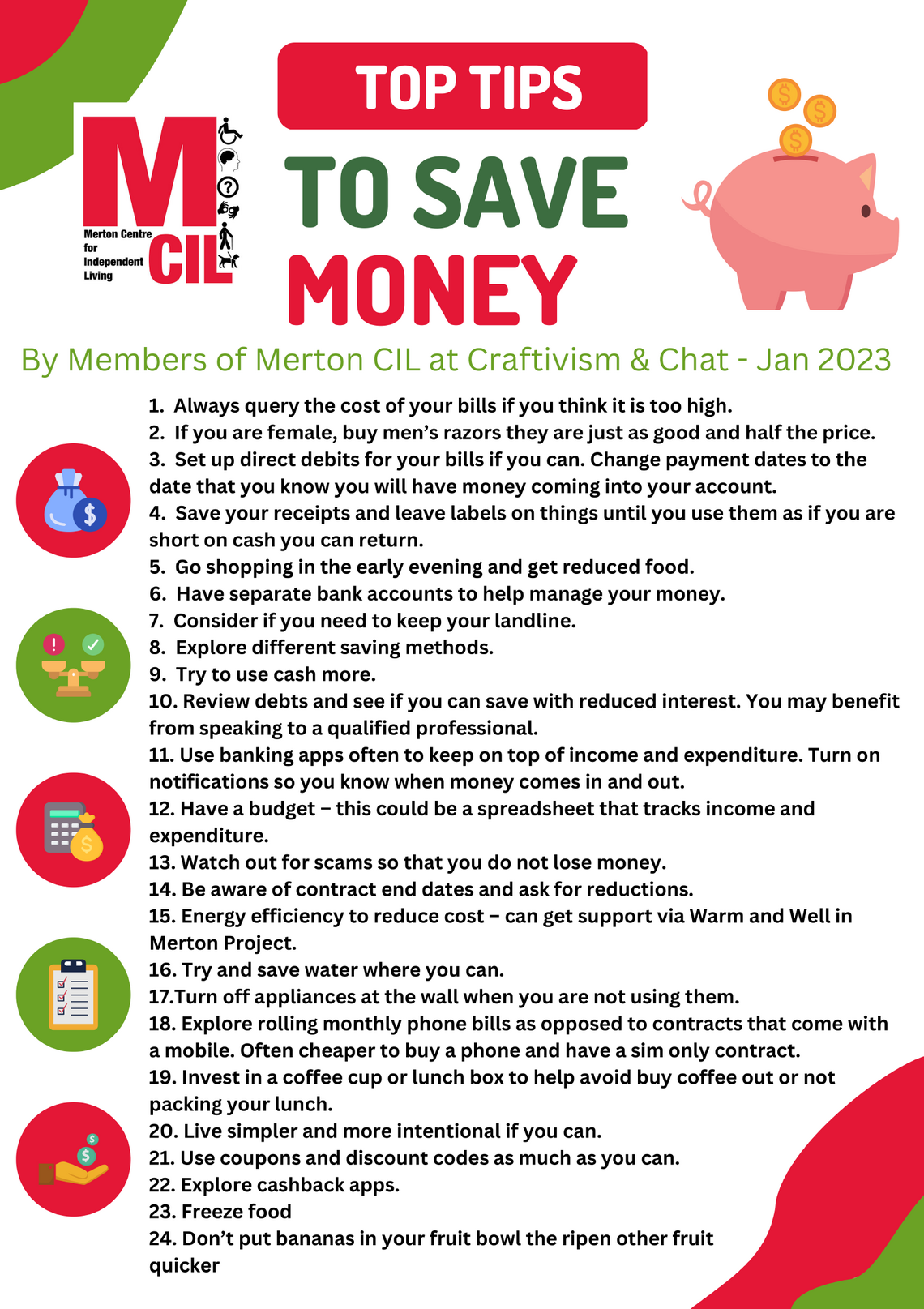Our top tips for saving money, if possible.
These tips were shared by attendees the session and are not financial advice.
You can download a PDF of the minutes from the session here - Craftivism Jan 2023 Minutes
Our current money worries
Below are some of the top worries that attendees at the session had around money.
- Being able to afford the extra costs of disability
- Unexpected medical costs such as dentist
- Managing benefits with increased costs
- Managing utilities bills, especially when the government support ends
- The inability to save
- That something goes wrong with my home. For example, the boiler
- Disrepair
- The rising cost of food
- Insurance costs are increasing – high cost and little return
- That we are not financially resilient
- No disposable income for holidays
- Costs of running a car – petrol, ULEZ etc
- Vet bills
- Charging when you are self employed
- Understanding the changing interest rates and what this means for personal finance
- Not being able to support family financially anymore
- Income is not increasing but everything else is
There will be a follow up session that explores how to create a budget and more in April 2023. Please RSVP via email.

